Project Outline:
Women's Epistolary Networks, 1600-1700: Ireland and Beyond is a two-year project sponsored by the European Union Horizon 2020 research and innovation programme and funded through a Marie Skłodowska-Curie Action Individual Fellowship (grant number: 897531). The project examines how one family of seventeenth-century women corresponded across the European territories. As the centrepiece of this study, a scholarly edition of the Boyle women's outgoing letters will be prepared and published with the Irish Manuscripts Commission.
Project Team:
Dr Ann-Maria Walsh, Marie Skłodowska-Curie Fellow.
a.walsh@qub.ac.uk
Dr Ramona Wray, Principal Investigator.
r.wray@qub.ac.uk
More Information:
A considerable number of the Boyle women’s letters have survived and these can be found in twenty-one repositories situated across Ireland, England, Scotland, and the United States of America. Spanning three generations and incorporating twenty-six different female correspondents, the letters date from 1605 to 1691 and offer a tantalizing glimpse into the Boyle women’s daily lives and their preoccupations set against the backdrop of monumental change in Britain and Ireland. The letters reveal how the women perceived their roles and relationships within both their own families and their households, across their landed estates, in their local communities, and among other members of the privileged elite. The letters also reflect the women’s lived experiences of girlhood, marriage, motherhood, and widowhood. The letters show how these female correspondents made use of their pens and the epistolary medium to navigate personal crises and to keep the familial bonds firmly intact. More broadly, the women's letters document how they chose to respond to occasions of wider public rupture such as civil war, besiegement, displacement, exile, plague, religious conformity, and the possibility of foreign invasions.
Aims of the Edition:
The publication of an edition of the Boyle women’s letters will ensure that those rarely heard female voices are preserved and made more accessible for a wider, future readership. The recovery and re-reading of the women's letters will enable a much more complex and nuanced understanding of the past and how individual women imagined and sought to represent themselves and their place in Irish, British, and European history.
It is also hoped that the edition will be generative, prompting a new awareness of the seventeenth-century Boyle women and their epistolary practices. But additionally, the recovered letters can also provide a substantial body of material from which to develop new and existing lines of enquiry in areas as diverse as female literacy, climate and landscape, diet and health, trauma and suffering, topics that are all hugely relevant and impactful in today's world.
Aims of the Website:
The Women's Epistolary Network website is designed to give a flavour of the range and richness of the Boyle women's surviving letters. With this aim in mind, the website is organised into five thematic threads: womanhood; war; religion; politics; and, health/medicine. Transcriptions and images of the original manuscript letters along with some photographs are presented in the relevant sections. All of the images and the transcriptions are subject to copyright. Please be aware that the edition is currently a work-in-progress and therefore the transcriptions which are being made available on the website are not the final edited version; new material will be continously added to the different sections of the website as the project evolves.
